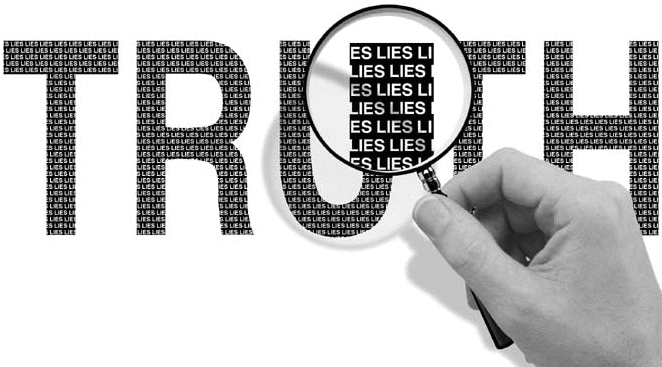by Stephanie Tucker, MDAAC, M.Min.
As he slammed the door to leave, Ann felt that sick, queasy feeling in her stomach. She knew what was next. She always knew what was next, and the chaos and frustration left her paralyzed. Brad promised to quit time and time again. But his promises meant nothing to her anymore.
Ann tried to hold their life together the best she could. She cared for their two daughters and worked a job to pay the bills. But she knew this couldn’t go on. All her efforts to make Brad quit failed. One part of her had love and compassion for him, she knew some of the things he has been through. On the other hand, Ann felt angry, betrayed and let down by his selfish need to go use drugs.
You may have a “Brad” in your life. He or she may be drinking alcohol excessively, using street or prescription drugs or finding another way to “get high” You may be a parent, a spouse, or a family member that simply can’t grasp how someone can continue down this road of insanity. That’s because the behavior of addiction is what the bible calls a stronghold. In full swing, addictive behavior spins completely out of control. The addict no longer chooses to use, the addict must use because of the physical and emotional dependency – and the spiritual nature of bondage.
There are no words that can describe addiction – it is a personal hell that destroys life and relationships. The addict can behave in ways that are inexcusable, yet, as horrible as it appears, the addict is in a self-destructive crisis that requires authentic love and intervention. If we could look at addictive behavior on a diagram, we would find its roots buried back to much deeper issues. Most addicts have already been vulnerable to addictive behavior long before touching a substance. When they pick up alcohol or drugs, it seems the perfect to deal with life.
What Should I Do as a Family Member?
While understanding the nature of addiction is essential, it’s important to understand how you can intervene. In step one of the twelve- step program we are to “admit we were powerless over alcohol (drugs, a person, etc.) and that our lives have become unmanageable.” Dwell on that for a moment. Does it fit your situation? Are you dealing with an alcoholic or addict and simply don’t know what to do? Do all your efforts to “help” seem to only make things worse? If it feels that way, it’s because in some ways it is true.
A person with addictive behaviors won’t respond to manipulation, rationalization or control. In fact, that only makes matters worse. What will an addict respond to? An addict has to come to that place of defeat, realizing that he or she is powerless over alcohol and drugs and that his or her life has spun out of control. When a person reaches this point, he or she will be ready for help. Normally, a person experiences a desire to change when the painful consequences of the addiction have exceeded any benefits. Family members easily become consumed by the addict’s behavior. They are often trying to protect, help, change and fix the addict, while at the same time feeling resentful and angry. Their efforts to “help” the addict in fact oftentimes allow the addict to stay in his or her disease. How so? If the family members can prevent the painful consequences from being felt by the addict, the family members also prevent the addict from hitting that “rock bottom” place where he or she will want and desire help.
Some ways family members prevent consequences include:
Continually bailing someone out financially
Providing housing for an adult child that should be self-sufficient ·
Calling the addict in “sick” to an employer ·
Bailing someone out of jail repeatedly ·
Believing lies and manipulations in order to appease the addict ·
Blaming self for the addict’s drinking or using
How Do I Intervene?
Educate yourself about addiction. The more you can educate yourself about addiction and treatment through a Christian perspective the more prepared you will be in understanding your role in the overall addiction cycle. We have a multitude of resources on our website and can offer you additional information if you are interested.
Understand Codependency. Many times, family members take on characteristics known as “codependency.” This behavior, although it appears good on the outside, is just as toxic and dangerous as the substance addiction itself. Visit our codependence blog at www.christiancodependence.wordpress.com.
Learn to Set Boundaries. You will need to learn to set firm boundaries with the addict. This essentially gives you the ability to love the addict, but refuse the negative behavior in your life.When you learn healthy boundaries, you will stop unknowingly enabling the addict in harmful ways. You may need to stop financially supporting an adult child or physically separate from a spouse (we do not encourage this, especially divorce, but in some circumstances, it is necessary).By allowing your child, husband or wife to face up to his her behaviors in church, work and home, there is a chance that he or she will be closer to wanting help.
Schedule an Intervention. Some people choose to coordinate a planned intervention. This can be a great alternative if you see someone sinking into the depths of addiction. The general idea of an intervention is to clearly and lovingly express your intolerance of the addict’s behavior. You also point out the ways in which the addict’s behaviors have hurt you and other family members/friends. Through an intervention, you must remember that the addict has deeper issues that drove him or her to use in the first place. Simply screaming angry, shaming and frustrated words won’t help, it will in fact cause the addict to run. Through an intervention you are essentially saying that you refuse to tolerate the negative effects of addiction, but you are standing by with love and encouragement, understanding the addict truly needs help. This approach should be gentle, yet firm, with clear-cut consequences if the addict refuses to get help. Most interventions offer the addict an opportunity to get detox or treatment immediately, with a pre-planned option in place.
What if The Intervention Doesn’t Work?
Interventions don’t work if they are not properly presented. Family members close to the addict often have a difficult time being objective: they are prone to either overly protect and defend the addict, allow the addict to manipulate and convince them they are “okay”, or are so bitter they are unable to display any grace whatsoever. Using a professional interventionist is an excellent alternative. The professional interventionist truly knows and understands the addict as well as the struggling family members. This interventionist can lead and direct specific projects, statements and tasks required by each family member. The interventionist spends time planning for the intervention prior to actually confronting the addict. Pastors and church leaders might be another excellent resource to call upon. A pastor that works in recovery or has been exposed to addicts and alcoholics would be most qualified.
Interventions don’t work if the addict truly isn’t ready to stop using. Some addicts simply don’t want to quit. If this is the case, then it is time that you show the addict “tough love”. This is where you want to enforce boundaries and stop enabling the addict to continue to use in any way. By making the addiction more “painful”, there is a better chance the addict will finally decide to get help. Remember, controlling someone else’s behavior is impossible. The purpose of setting boundaries is merely to protect yourself and your family members, and to let the addict know that you love him or her too much to participate in his or her choice to consume alcohol or use drugs in any way.
I’ve Been Told I Need Help.
Why? Whether or not your addict gets help and enters treatment, you can learn to cope in healthy ways. If you struggle with codependency, you will literally need to unlearn some of the ways you have been functioning in that relationship. Seek counseling, a 12-step program (Al-Anon or Celebrate Recovery) or find guidance from a recovery pastor who understands addiction and codependency. Seek out books and resources. We recommend you visit our codependence blog at www.christiancodependence.wordpress.com.
But most importantly, seek out God. This is the time to “let go and let God”. In your recognition of the enormity of substance addiction and your inability to change it, you have the opportunity to hand it over to God (Step 3). Your prayers are by far your most powerful weapon. As you depend on the Lord, He may change the addict in your life, but He will definitely change you and grant you the peace and joy of His presence.
For more information on addiction, codependency or for help in planning an intervention, please contact us at 714-841-1906.
Stephanie Tucker is the codependency and family counselor of New Life Spirit Recovery









